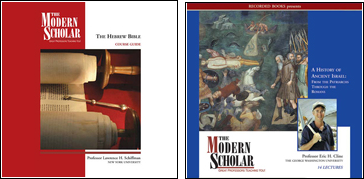After just finishing a couple of audiobooks, I decided this morning to begin a bit more language learning instead of another book. So, I started listening to the Earworms Rapid Language Course entitled Rapid Greek Vol. 1, which I had downloaded some time ago. And, I must say that Earworms is one of the best language learning audio resources that I have come across in a long time.
I have spent a good deal of time studying Modern Hebrew using Pimsleur materials. These materials work very well, except there is one significant problem. The exercises get very boring. Earworms reminds me of the repetition that is found in the Pimsleur materials; however, this repetition is set to upbeat music. In many places, the conversations are actually in time with the music adding rhythm to the learning. And, the interaction between the speakers is quite a bit more lively than those in Pimsleur. Thus, the repetition, which is one of the major keys to learning any language, is much easier to stomach. I feel like I gained a great deal this morning from only about 45 minutes of listening.
The two issues that I would point out with Earworms for those interested in checking out the materials is that the selection of languages is somewhat limited and there are only two volumes lasting a little over one hour each. As an example of the limited selection, one is able to learn Spanish; however, this is the form of the language spoken in Spain, whereas learners in the US would more likely be interested in the form spoken in Latin America. In terms of the only having a small amount of material, this limits Earworms to being somewhat of a jump start to language learning. The resources would not really work long-term for someone wanting to become advanced in a language (though there website does state that the materials will eventually progress to five volumes).
If you are interested in learning more about Earworms Rapid language courses, check them out HERE. Or, download them with a free trial of Audible.

